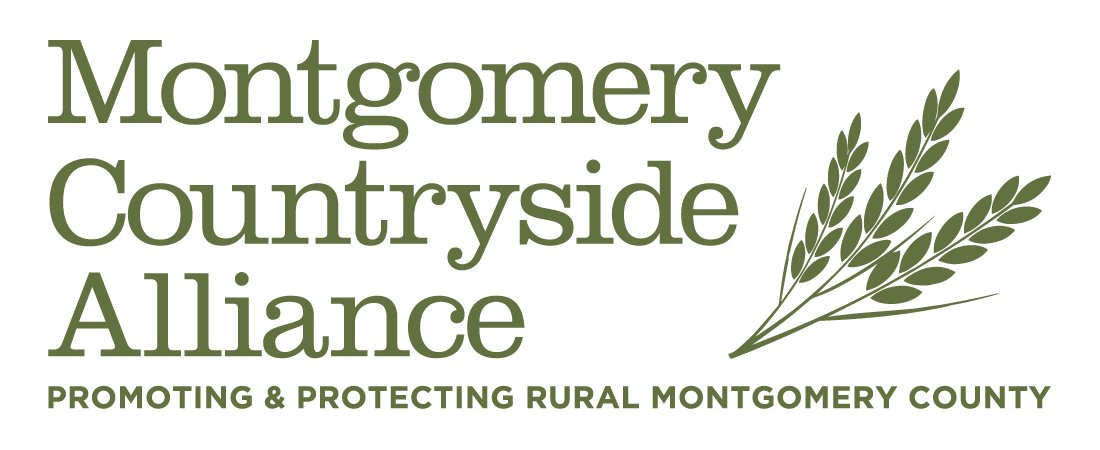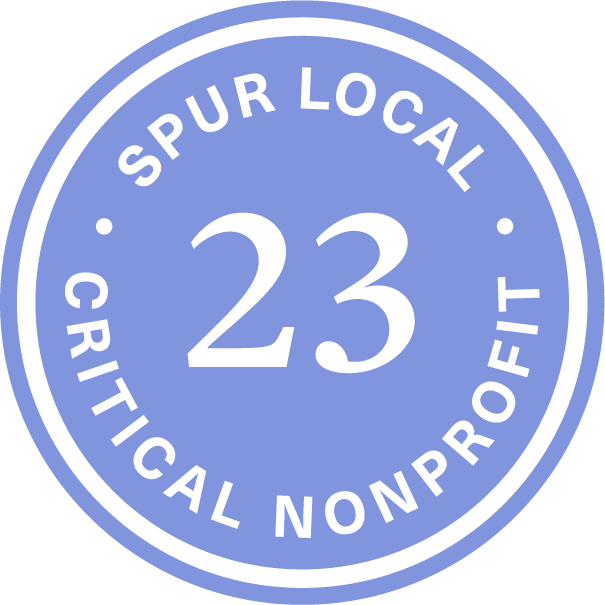May 11, 2021 – Joyce Bailey
We joined the Climate Justice Wing of the Maryland Legislative Coalition in the Spring of 2020 to add our support to a coalition of groups from across Maryland who are working on climate and environmental legislation at the state level. Although the majority of MCA’s focus is appropriately directed at the local level, it is important for our voices to be heard at the state level and for others to learn about the strengths and resources of the Agricultural Reserve as well as its challenges. At the same time, we do not live on an island. Climate and equity events outside of our borders affect us deeply and it is important that we devote some time and effort to addressing these challenges through legislation at the state level.
This past year, the Climate Justice Wing advocated for a select number of bills to make our voice more focused and effective. Many of the bills and ideas that we prompted were passed this session. A list of those bills follows.
Unfortunately, the larger, overarching bills addressing the climate crisis and environmental justice such as Climate Solutions Now and the Constitutional Amendment for Environmental Rights did not pass.
Going forward the Climate Justice Wing is working on a three-prong approach:
- Short term: Collect input on bills that member groups think should be considered for 2022.
- longer term: work with groups that are on the frontlines of the places in Maryland that have been the most harmed by environmental injustice. Talk with them about what they have done, what issues they have encountered, and how Climate Justice can help.
- Long term: collect from member groups a list of issues that should be pursued by CJW Things like building efficiency, recycling, finding a better alternative to natural gas for power plants. For those issues, CJW will partner with people who can help s come up with solutions. CJW will educate legislators about those solutions, join working groups that help drive legislation, or work with legislators to get legislation going.
The following bills passed:
Maryland Transit Administration Funding and MARC Rail Extension Study SB199:
Requires the Governor to include funding in the State budget to MTA for operating and capital needs. It also establishes the Purple Line Construction Zone Grant Program to help small businesses offset the loss in revenue due to its construction. Also requires DOT to conduct a study on extending Maryland Area Regional Commuter (MARC) rail service to western Maryland.
Zero-Emission Bus Transition Act HB137/HB334 (Maryland transit Administration-Conversion to Zero-Emission Buses)
Prohibits MTA from purchasing buses for the state transit bus fleet that are not zero-emission buses, subject to certain exception and authorizes them to purchase alternative -fuel buses under certain circumstances. They will report to certain committees of the General Assembly on their progress once a year.
Community Choice Energy HB768
Allows Montgomery County to set up a 7-year pilot community choice aggregation program to purchase electricity on behalf of all consumers and businesses in its jurisdiction. Through CCE, Montgomery county can negotiate better rates and require more renewably sourced energy; requires the PSC to write state regulations governing the pilot program with a committee of representatives.
Utility Regulation – Consideration of Climate and Labor SB0083
Requires the Sec. of Environment to prepare a recommendation in connection with issues considered by the Public Service Commission; requires the Sec. of Natural Resources to incorporate an evaluation of the impact of electric power plants on climate change into the Power Plant Research Program; requires the PSC to consider the maintenance of fair and stable labor standards and the protection of the global climate in supervising and regulating public service utilities.
Water Pollution-Stormwater Management Regulations and watershed Implementation Plans-Review and Update SB0227/HB0295
Addresses the impacts of climate change and increased precipitation and flooding by: 1) requiring regular updates to Maryland’s outdated technical design standards for stormwater and erosion control practices; and 2) ensuring that the last round of water pollution permit renewals address increased stormwater pollution attributable to climate-driven precipitation before the 2025 Bay Total Maximum Daily Load (TMDL) deadline.
Natural Resources-Forest Mitigation Banks-Qualified Conservation HB991
Between 2022-2030 Maryland will plant 5 million trees with 500,000 of those trees to be planted in urban areas that have been historically redlined or are economically disadvantaged; increases the signing bonus paid to farmers who enroll in the Conservation Reserve Enhancement Program by up to $1,000 per acre; creates a grant program to fund community groups planting trees in underserved urban areas through the Chesapeake Bay Trust; establishes the use of qualified conservation in a forest mitigation bank of all or a part of certain existing forests as a standard for meeting certain afforestation or reforestation requirement; alters the defined term “forest mitigation banking” as it applies to the Forest Conservation Act to include the qualified conservation of forests; requires the Harry R Hughes Center for Agro-Ecology, in consultation with certain units of State government and the Chesapeake Bay Program, to conduct a technical study
Solid Waste Management-Organics Recycling and Waste Diversion-Food Residuals HB264
Requires a generator of food residuals to separate the residuals from other solid waste and ensure that the food residuals are diverted from final disposal in a refuse disposal system; applies requirement of the Act, to persons that generate certain amounts of food residuals authorizes a person experiencing undue hardship because of costs of diverting food residuals to apply for a waiver
Maryland Recycling Act-Recyclable Materials and Resource recovery Facilities – Alterations HB280
Alters the definition of “recyclable materials under the Maryland Recycling Act to exclude incinerator ash; and repealing the authority of a county to utilize a resource recovery facility to meet 5% of the waste reduction required to be achieved through recycling in the county’s recycling plan.
Renewable Energy Portfolio Standard and Geothermal Heating and Cooling Systems HB1007
Alters the renewable energy portfolio standard to require a percentage of energy from Tier 1 renewable sources to come from geothermal heating and colling systems each year; requires the PSC to adopt regulations; requires electricity suppliers to pay compliance fees into the Maryland Strategic Energy Investment Fund; establishes a Geothermal Energy Workgroup; requires the Maryland Energy Administration to conduct a study on geothermal heating and cooling systems; and requires MEA, in consultation with the Workgroup, to develop recommendations for an incentive structure and report the results and recommendation to the General Assembly.
Renewable Energy Portfolio Standard-Wastewater Heating or Cooling System
Expands the types of energy sources that qualify as Tier 1 renewable sources under the RPS; adds certain wastewater used in certain manners to the definition of a Tier 1 renewable source; authorizes energy from a wastewater heating or colling system to be eligible for inclusion in meeting the RPS under certain conditions
Electricity-Renewable Energy Portfolio Standard-Qualifying Biomass SB065
Alters the definition of “qualifying biomass” to exclude “black liquor as a Tier I material
Environment - Commission on Environmental Justice and Sustainable Communities-Reform HB1207/SB674
Strengthens the Environmental Justice Commission Alters the membership of the Commission on Environmental Justice and Sustainable Communities; require the membership of the Commission to reflect the diversity of the State to the extent practicable; specifies the term of certain members; requires MDE to provide a new member with an orientation reviewing environmental justice issues in the State; alters the manner in which a chair is chosen; requires the Commission to meet at least six time per calendar year.
School Buildings: Drinking Water Outlets-Elevated Level of Lead (Safe School Drinking Water Act) HB636
Stricter lead standards for school drinking fountains. Alters the definition of “elevated level of lead” for purposes of certain provisions of law requiring the periodic testing for the presence of lead in drinking water outlets in occupied public and nonpublic school buildings
While Climate Justice is the aim of much of our advocacy at the state level - these goals, nor any others can be undertaken meaningfully in a climate of disrespect. That is why we wrote a letter to the Ethics Committee asking for recent disrespectful actions toward People of Color, women and LGBTQ+ people on the part of delegates to be investigated. We also sent a letter to Speaker Jones asking that all delegates participate in diversity and inclusivity training to create a more respectful climate for delegates and the general public they represent.








